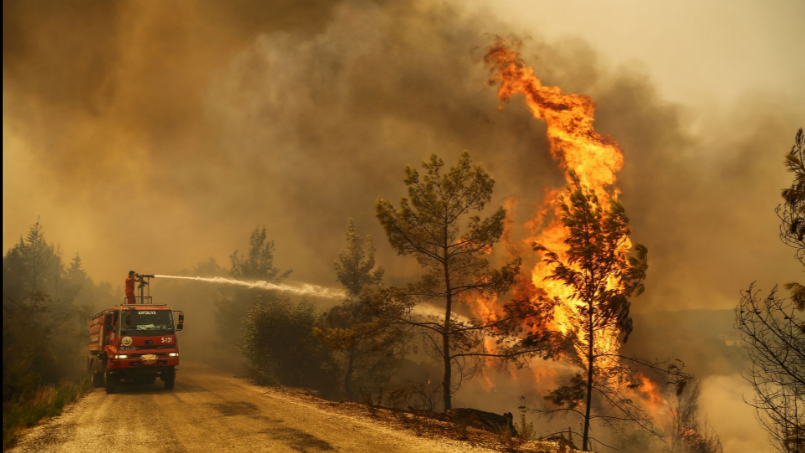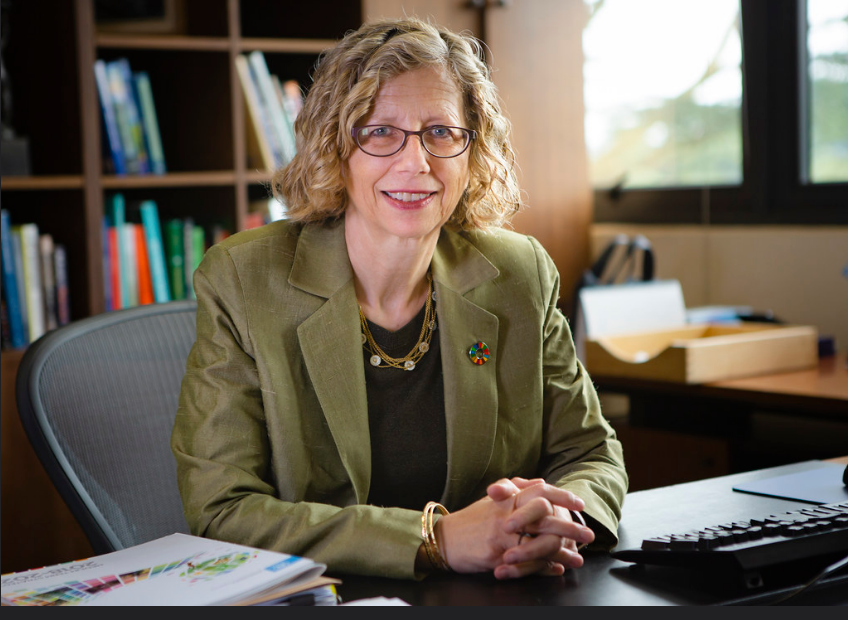
The UN Intergovernmental Panel on Climate Change (IPCC) report declaring that the planet will become hotter by 1.5 degrees Celsius as soon as the early 2030 has left leading environment experts and organizations worried.
Such an increase in global temperature will trigger more extreme weather events, including floods, typhoons, heatwaves and wildfires, leading to a devastating impact on human lives. People in developing countries would face the worst consequence of such catastrophic weather events.
Even if countries drastically phase out the use of fossil fuels - known for warming the atmosphere - immediately, the global temperature will still continue to increase by 1.5 degrees Celsius in the next two decades, warned the report released on Monday.
The grim findings have led to sharp reactions by experts and organizations working towards phasing coal, oil, and gas to generate energy. Here are reactions by a few leading environmental and conservation organizations to the IPCC sixth assessment report.
Inger Andersen, Executive Director, UN Environment Programme

Inger Andersen stresses that reducing emissions will help mitigate the impact of climate change and help boost biodiversity and curb air pollution. /UNEP
Inger Andersen stresses that reducing emissions will help mitigate the impact of climate change and help boost biodiversity and curb air pollution. /UNEP
The world listened, but it didn't hear. The world listened, but it didn't act strongly enough. As a result, climate change is a problem that is here, now. Nobody is safe. And it is getting worse faster.
We must treat climate change as an immediate threat, just as we must treat the connected crises of nature and biodiversity loss, and pollution and waste, as immediate threats. As recently noted by the IPCC and the Intergovernmental Science-Policy Platform on Biodiversity and Ecosystem Services (IPBES), climate change exacerbates already grave risks to biodiversity and natural and managed habitats.
Ecosystem degradation damages nature's ability to reduce the force of climate change. And as the IPCC Working Group I report reminds us, reducing greenhouse gases will not only slow climate change but improve air quality. It is all connected.
Manuel Pulgar-Vidal, Global Climate and Energy Lead, WWF

Manuel Pulgar-Vidal believes IPCC's sixth assessment report is crucial for Global Climate Summit in Glasgow, later this year. /WWF
Manuel Pulgar-Vidal believes IPCC's sixth assessment report is crucial for Global Climate Summit in Glasgow, later this year. /WWF
The report is an important moment in the lead-up to Global Climate Change Summit, COP26, in Glasgow because it is all about certainty – certainty of the scale of the climate crisis and humankind's role in driving extreme weather events, certainty of how much we have changed the planet, and certainty that things will continue to get worse unless we immediately change course.
That's why world leaders must use every opportunity, especially the upcoming G20 Summit and COP26, to deliver climate action that responds to the ambition needed to ensure the 1.5 degrees Celsius goal of the Paris Agreement does not slip out of reach.
Nigel Arnell, Professor of Climate System Science, University of Reading and lead author for Chapter 12 – Climate change information for regional impact for risk assessment
The latest IPCC report confirms that human activities have changed our climate and led to the more frequent heatwaves, floods, droughts and wildfires that we have seen recently. The evidence is incontrovertible.
The report also shows that impacts will continue to increase virtually everywhere, and only by major reductions in emissions – achieving net-zero – will there be a chance of meeting the internationally agreed climate targets. We now have a greater understanding of how quickly risks will change, and several very damaging plausible 'worst case scenarios cannot be ruled out.
"In my view, there are two key messages from the report for attendees at COP26. First, the report emphasizes to climate negotiators – again – the need to reduce emissions further than currently looks likely in order to hit Paris targets.
Second, the report highlights – more urgently than the last report from 2013 – the importance of ramping up our collective efforts to adapt to our changing climate and increase resilience to more frequent and more extreme weather disasters in the future. Recent events have shown we are all exposed to climate risks."
Dr. Kat Kramer, Climate Policy Lead, Christian Aid
Science has spoken: urgent climate action is needed to cut emissions rapidly and deeply, or the whole world, especially the people on the frontline, will be plunged further into peril and poverty.
This IPCC report puts carbon dioxide emissions firmly in the firing line, reinforcing the need for net-zero emissions. These findings clearly show the need to end the fossil fuel era and to move to a future based on efficiency and renewables, while creating access to energy for those in poorer countries that currently lack it.
So far, political will to act has been wildly inadequate. Current national pledges put us on a pathway to a 2.4 degrees Celsius world, which the IPCC shows would sentence people to more and fiercer heatwaves as well as droughts in some regions. These impacts will be most devastating to the world's already-vulnerable people.
(Cover: A firefighter tries to extinguish a forest fire near the town of Manavgat, east of the resort city of Antalya, Turkey, July 30, 2021. /Reuters)

